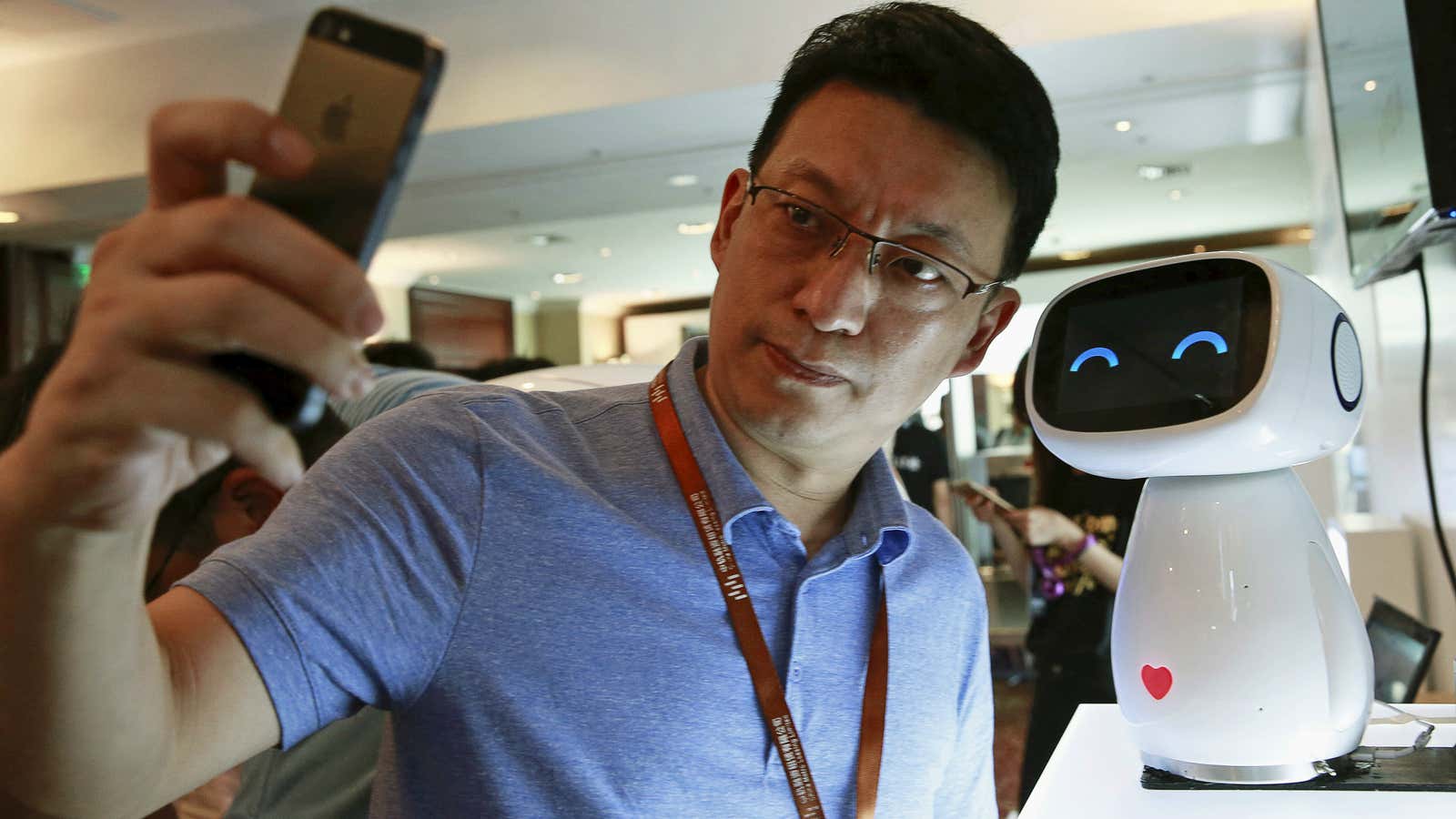The United States has long led the world in technology. But there’s strong reason to believe that as artificial intelligence (AI) becomes increasingly widespread, stateside engineers will quickly have to contend with another global powerhouse—China.
A report jointly published by New York-based research consultancy Eurasia Group and Beijing-based VC firm Sinovation Ventures on Dec. 6 outlines how China has been making rapid advances in AI over the past few years. At present, write Paul Triolo of Eurasia Group and Kai-Fu Lee of Sinovation ventures, China lags behind the US when it comes to engineering talent, as well as in the hardware required to build effective “autonomous AI”—robots, self-driving cars, and other physical machines. But in effect, the “US-China AI duopoly is not only inevitable. It has already arrived.”
And China’s AI prowess will soon match that of the US, perhaps even surpassing it, says the report. One major advantage China enjoys over the US, for example, is access to a massive pool of data. China’s enormous population is well-connected—the country is home to 800 million internet users, the majority of whom have access to mobile devices. According to data from Chinese research firm QuestMobile, China has about three times as many active internet-connected devices as the US.
“The size of available datasets is the most important source of competitive advantage in AI,” write the authors of the report. “It takes smart people to tweak the algorithm, but when it comes to applying them, it’s all about the data: who has it first, and who has more.”
Two trends highlight how tech companies in China are able to collect data with much greater ease than in the US. Research suggests, for example, that Chinese use their phones to conduct monetary transactions far more often than Americans. Thanks to the ubiquity of Alibaba’s Alipay app and Tencent’s payment service on chat app WeChat, for example, Chinese consumers are expected to spend about $8 trillion through mobile payments in 2017—about 50 times what Americans will spend. Also, due to the proliferation of food-delivery apps fueled by cash-rich tech giants and cheap labor, Chinese consumers make about 10 times as many meal orders on their phones than Americans.
Meanwhile, in the realm of autonomous AI, Chinese manufacturers are deploying robots at a rapid pace. These robots themselves collect data, which, via a virtuous cycle, can be used to further perfect factory automation.
But data is only one part of the story. In July, not long after Google’s AlphaGo defeated Chinese champion Ke Jie at a series of Go matches, China’s State Council announced the “Next Generation Artificial Intelligence Development Plan.” The directive called on private enterprises and universities to embrace AI, setting 2030 as the year China becomes “the world’s primary AI innovation center.”
China’s strong track record of successfully implementing these top-down directives means this one should be taken seriously, the authors argue. “Beijing announced in 2010 that China would become the world’s leader in adopting high-speed rail (HSR). Today it has 60% of the world’s HSR market. In 2014, the Chinese government announced the ‘Mass Enterpreneurship and Innovation Plan.’ Today there are 8000 business incubators in China, compared to 1400 in 2014,” they write. “We can expect a similar trajectory for China’s AI policies.”
